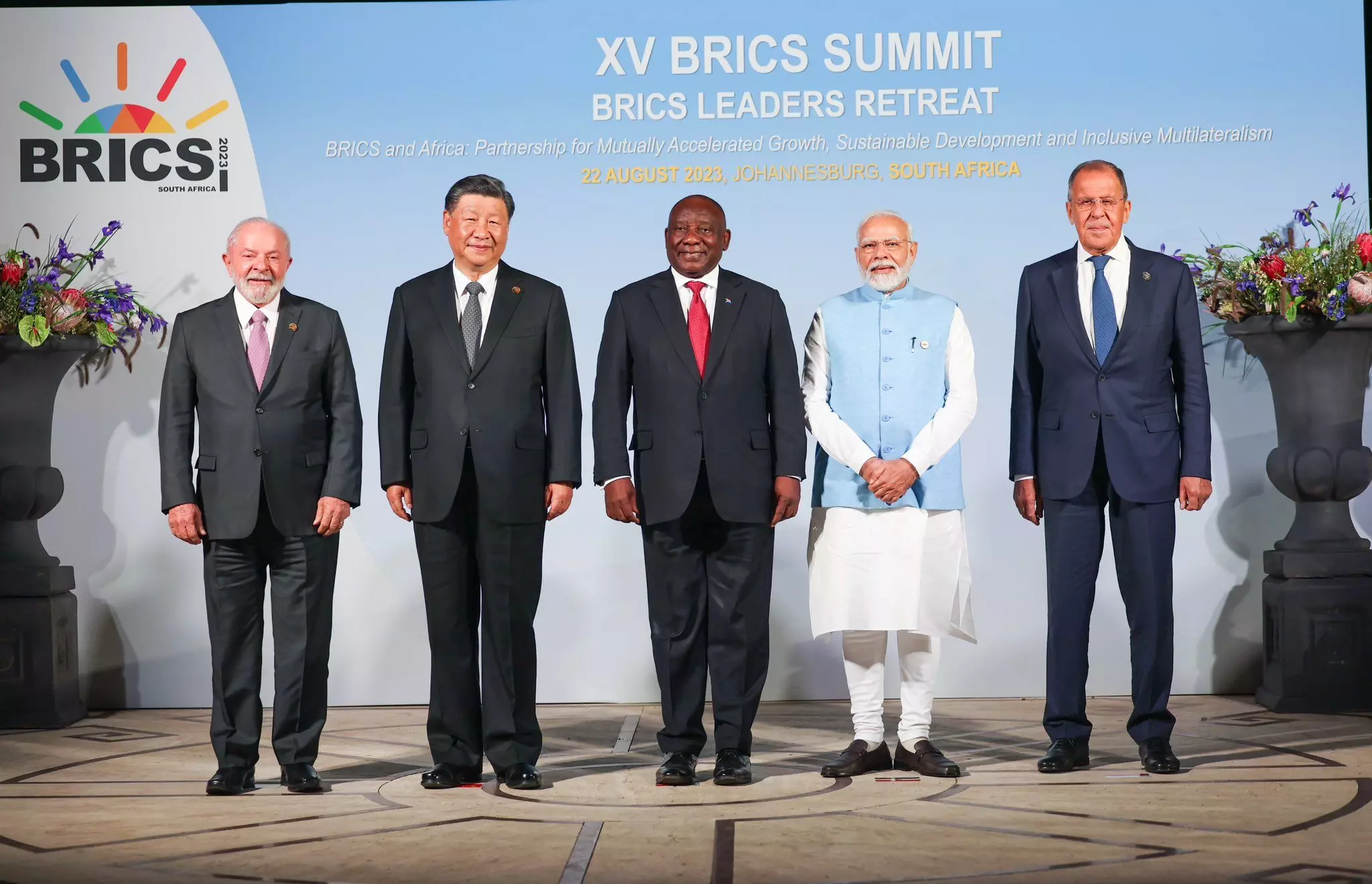Still in fragments

The three-day BRICS summit in Johannesburg, which began on Tuesday, will conclude today. For a group which, despite representing 40 per cent of global population and 25 per cent of the world economy, has been seen as lacking geopolitical sharpness, the 15th summit in South Africa has seen unprecedented dynamism. Yet, the key stumbling blocks in the form of differential approaches of member nations, and even stark rivalry among certain key nations, persist. BRICS — an acronym for Brazil, Russia, India, China, and South Africa — is a consortium of major emerging economies aiming to assert their influence in global affairs. Established in 2006, the group aims to foster economic cooperation, political dialogue, and cultural exchanges among its member nations. It seeks to promote multilateralism, strengthen South-South cooperation, and address key global challenges. The most standout feature of the 15th BRICS summit is that it has drawn keen interest from as many as 40 nations to join the grouping — 22 among whom have made formal requests for membership. China and Russia have expressed their interest in expanding the group in a bid to enhance its political weight in international affairs. Quite interestingly, among the countries seeking membership, some are staunch allies of the US — like Saudi Arabia, the United Arab Emirates, Bahrain and Egypt — while some others are its rivals, for instance, Iran. Several African, South American and Asian countries have also expressed their interest to join BRICS. This brings into question the ideological positioning of BRICS. Member countries like China and Russia see it as a rival to Western blocs. India, on the other hand, cannot afford to adopt such a posture, given its proximity and strategic interests with US and other Western nations. At the very outset, Brazilian President Luiz Inacio Lula da Silva also emphasised that the BRICS group of emerging nations is not intended as a challenge to existing international coalitions like the G7 or the United States. Instead, its purpose is to effectively "organize" and represent the interests of the Global South. South Africa echoes the same view, as it buckles under the pressure of aligning itself with the West. It appears difficult for these nations to break free from the clout of the United States. Against this backdrop, if approved, the expansion of BRICS will usher in a whole new dynamism where the influence of comparatively weaker members of BRICS may deteriorate further. Furthermore, it will open up a space for contestation among China, India and Russia to appropriate the support of newer members. The question is, can India match Chinese clout over prospective members? It is highly unlikely. The expanded BRICS may prove to be a counterbalancing force against the dominance of Western blocs in shaping international — particularly South Asian — interests. However, the prospective expansion also has the potential to disrupt the existing internal balance of the grouping — either tilting it in the favour of China or leading to a further enhancement in the inaction of the grouping. There is no denying the fact that the Global South desperately needs a strong and extensive structure that will represent its aspirations. However, this structure has to focus independently on the upliftment of the Global South, rather than being reduced as a tool to propel US-China geopolitical rivalry. Only an internally balanced BRICS can serve to fulfil the group’s core objective of promoting multilateralism. Creation of a stark hierarchy, by whatever means, will simply kill the idea. Before expansion, a cohesion among existing members is necessary to restore trust and resilience. While Putin could not attend the summit in-person on account of a warrant by the International Criminal Court, Xi Jinping’s decision to skip the Business Forum tells the entire story of the fragmented group. By the time of writing of this editorial, despite having some or other common interests in de-dollarisation, BRICS members failed to cohesively firm up their stance on the matter. The Indian PM used the opportunity to “highlight India’s growth trajectory and the steps taken to boost ‘Ease of Doing Business’ and public service delivery”. He also emphasised on India’s strides in digital payments, infrastructure creation, the world of startups and more. However, the significance of BRICS is far greater. Can rival members come together to give the Global South a true representative body? The answer is better left with time.



